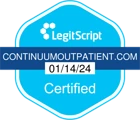What Is an Outpatient Treatment Program?
What Is an Outpatient Treatment Program?: An Introduction
An outpatient treatment program provides necessary mental health or substance use disorder treatment for individuals without an overnight stay in a facility. Instead, patients attend scheduled appointments and then return home. This best suits those who do not need around-the-clock care.
The specific structure of outpatient treatment can vary, as this is based on the individual’s needs. These practices help ensure that individuals receive ongoing support, maintain progress, and address any emerging issues. Treatment may also vary based on the type of condition present.
In 2021, an estimated 57.8 million adults in the United States suffered from a mental health condition. These conditions vary in severity and duration, with severe cases often involving residential care.1

The Benefits of Outpatient Care
Primary Treatment Goals in an Outpatient Treatment Program
Symptom Management
Prevention and Education
Skill Development
Relapse Prevention
Medication Management
Medication management refers to the process of safely and effectively using medications to achieve the best possible health outcomes. It often involves various aspects, such as administration, monitoring, and adherence.
Behavioral Change
Monitoring and Follow-Up
What Evidence-Based Treatment Modalities Are Employed in an Outpatient Treatment Program?
- Cognitive-Behavioral Therapy (CBT): CBT is used for mental health conditions and substance use disorder. It acknowledges that thoughts and behaviors are connected. Because of this, the focus is on changing negative thought patterns and behaviors.
- Dialectical Behavior Therapy (DBT): DBT is often used for individuals with emotional regulation difficulties. This includes those with borderline personality disorder. It combines cognitive-behavioral techniques with acceptance strategies.
- Motivational Interviewing (MI): MI is a client-centered approach. It is used to explore and resolve ambivalence toward change. Most often, MI is used in an outpatient treatment program for substance use.
- Medication-Assisted Treatment (MAT): MAT combines behavioral therapy with medications. MAT is generally used to treat substance use disorders, such as opioid addiction.
- Family Therapy: Involving family members in the treatment process can be crucial. This is especially true for conditions that affect the entire family dynamic.
- Acceptance and Commitment Therapy (ACT): ACT focuses on helping individuals accept what is out of their control while committing to actions that enrich their lives. It’s often used for various mental health concerns.
- Trauma-Informed Therapy: Trauma-informed therapy emphasizes creating a safe and supportive environment. It considers the impact of trauma on an individual’s well-being.
- Group Therapy: Group settings provide an environment for individuals to share experiences, receive feedback, and develop interpersonal skills.
What Holistic Treatment Methods Are Used in an Outpatient Treatment Program?
Mindfulness and Meditation
Meditation practices also contribute to emotional regulation, stress reduction, and an overall improvement in psychological well-being.
Yoga and Movement Therapies
Nutritional Counseling
Art Therapy
How Does an Outpatient Treatment Program Help Individuals With Dual Diagnoses?
Integrated Treatment Approach
Holistic Assessment
Coordinated Care
- Psychiatrists
- Psychologists
- Social workers
- Substance abuse counselors
- Masters-level clinicians
Dual Diagnosis Support Groups
Support groups focused on dual diagnosis are often integrated into an outpatient treatment program. These groups provide individuals with the opportunity to:
- Share experiences
- Receive peer support
- Learn coping strategies from others facing similar challenges
- Hold one another accountable for recovery
What Strategies Are Used to Provide Integrated Care for Complex Cases in an Outpatient Treatment Program?
Comprehensive Assessment
Care Coordination
Shared Electronic Health Records (EHRs)
Regular Case Conferencing
Patient-Centered Approach
Telehealth Services
Peer Support and Community Resources
Continuous Evaluation and Quality Improvement
How Does an Outpatient Treatment Program Address the Evolving Needs and Progress of Participants?
- Ongoing assessment
- Flexible scheduling
- Therapeutic modalities
- Crisis intervention
- Medication management
- Gradual intensity adjustment
- Family and social support involvement
- Goal reassessment
- Education and skill-building
- Aftercare planning
Aftercare and Relapse Prevention Strategies Integration
- Continued access to counseling and therapy: Aftercare programs offer continued support after the completion of primary treatment. This support can be in individual counseling, group therapy, and participation in support groups.
- Relapse prevention education: Education on relapse prevention strategies is provided. This empowers individuals to identify risks and develop coping skills to maintain sobriety. Relapse prevention often comes later in an outpatient treatment program.
- Crisis intervention services: These services help provide individuals with the necessary intervention needed in an emergency.
- Family involvement: Families are actively involved in the treatment process. Family members can provide a supportive environment at home. Involvement aids in strengthening relationships crucial for long-term healing.
- Skill reinforcement: Ongoing education about addiction, recovery, and mental health is a key component of aftercare. This knowledge equips individuals with the information and skills necessary to make informed decisions and navigate challenges in their daily lives.
- Holistic treatment methods: Holistic wellness approaches are promoted. They address physical health, emotional well-being, and social connections. This works to support mental health and sobriety.

Enroll in an Outpatient Treatment Program With Continuum Outpatient Center
Mental health conditions can come in various forms, with varying severities. For those seeking moderate care, an outpatient treatment program can be beneficial. We offer a variety of outpatient treatment programs, such as an intensive outpatient program or partial hospitalization program.
Contact Us Today
To learn more about an outpatient treatment program, contact us today. We will provide you with the support to build resilience and learn the tools for a healthier, more fulfilling life.


